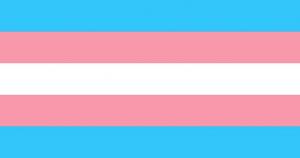
A lot of discussions that I’ve seen of trans identities—chiefly, but not only, from unfriendly sources—assume that gender identity needs some kind of body-based rationale. Men are men, women are women, it’s not hard! It’s right there, literally in the flesh! And facts, I am informed, don’t care about your feelings.
I do sincerely think that intersex bodies are something of a wrench in the works for this. If neither physical appearance, nor gonads, nor chromosomes are absolute guarantees of sex, what exactly are we appealing to about the body that’s so easy to understand? But apart from that, I think there’s a whiff of scientism at work here. By scientism I mean the belief (stated or implicit) that the only things that matter are the ones we can study by scientific methods. Trans identities are dismissed as just feelings—the obvious, unstated extra premise being that feelings don’t matter in this context.
The thing is, no Catholic can endorse a scientistic view of the human person. (1) We believe that each human being is a union of body and spirit, and that the intangible, immortal spirit is the root of the person. The spirit is our identity: it persists between death and final resurrection; it can even miraculously imbue bread and wine with an entirely new essence, changing them into a Body and its Blood. Scientistic this ain’t.
But let’s not be hasty. Without being reductionistic or materialist, still, it’s true that the body is profoundly important—a mystery. St John Paul II referred to the body as the self in the dimension of gift: we receive everything, we receive our very existence, through the bodies of our parents, and everything we give to others, we give through our bodies. It is the medium of all communion with our fellow man. Understanding that mystery, let alone tinkering with it, is quite a task, even if we usually feel casually familiar with our bodies.
Which hints at another question. Does the soul itself have gender?

It’d explain a good deal if it did. Holy Orders being restricted to males, for example, or the human habit of assigning genders to things that certainly do not have a physical sex (like ships). And if the soul does have gender, do we know for certain that the gender of the soul and the sex of the body always align? Could trans people be, almost literally, spirits inhabiting the ‘wrong’ body? (2)
The alternative would be that gender is just a name for the relationship between the soul and the body’s sex. That seems to be the view taken in Theology of the Body, though it’s hard to tell (for a lay reader like me, anyway). That involves us in certain other difficulties, though: for example, if gender is only a name for the relationship between the spirit and the sexed body, then don’t intersex bodies entirely destroy any notion that sex is binary? If the body’s sex is ambiguous or mixed, then, on this definition of gender, gender too can be ambiguous or mixed. Crowbarring someone into the male-female binary, on those premises, would surely be at least as wrong as changing someone’s sexual anatomy through surgery.
This is all fairly confusing, and I am not finished exploring it. As I keep saying, I’m no expert. But I think we need to approach these questions with an intellectual humility that recognizes that this is not as simple an issue as it looks at first blush.
Part Four; Part Five; Part Six
(1) We can’t endorse a view that nothing is real except the meanings we invent for ourselves, either. But I have not run into many people, trans or not, who seriously advocate that belief.
(2) Not all trans people use or like ‘trapped in the wrong body’ language; some trans people don’t even experience gender dysphoria.
Images via Pixabay
















